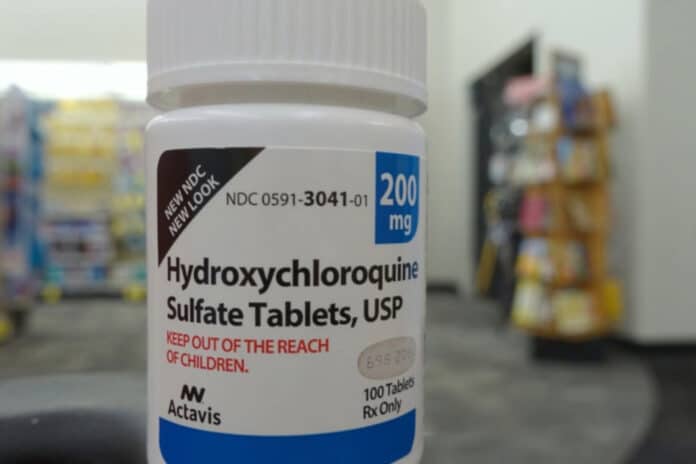
(LifeSiteNews) — The prestigious Mayo Clinic scrubbed a webpage conceding that the drug hydroxychloroquine (HCQ) can be used to treat COVID-19 after a Trump administration alum called attention to the admission.
Hydroxychloroquine is an FDA-approved medication with a range of human applications, primarily for malaria, such that it is included on the World Health Organization’s Model List of Essential Medicines. In the early days of the COVID-19 outbreak, scientists began researching its potential applications in treating the new virus, a development that was quickly promoted by then-President Donald Trump. The mere fact that Trump touted HCQ’s potential turned it into a political lightning rod, sparking years of false media stories, insistence that the drug is ineffective for COVID, and even penalties for doctors who have prescribed it.
On Sept. 24, former Trump administration director of the Office of Trade & Manufacturing Policy Peter Navarro posted a link on X/Twitter to a Mayo webpage that at the time contained the statement, “Hydroxychloroquine may be used to treat coronavirus (COVID-19) in certain hospitalized patients.”
The Rochester Post Bulletin adds that the page qualified the admission with a statement that it should only be taken for COVID “in a hospital or during clinical trials” and with a doctor’s prescription. Two days later, Mayo took down the page and disavowed the language Navarro highlighted.
Seriously running out of conspiracy theories pic.twitter.com/cohEh3Zju7
— zerohedge (@zerohedge) September 25, 2023
“Mayo Clinic is aware that inaccurate information about hydroxychloroquine was included on one of our web pages,” a spokesperson told the Bulletin. “This content was provided by a vendor. Hydroxychloroquine is not part of Mayo Clinic’s prescribed treatment algorithms for COVID-19. Mayo Clinic does not endorse the use of hydroxychloroquine for treating COVID-19 patients. We are also taking steps to prevent the introduction of errors in content supplied to Mayo Clinic for use on our web pages.”
The page in question now begins with a declaration that HCQ “is not recommended as a treatment for coronavirus disease 2019 (COVID-19). Also, hydroxychloroquine doesn’t prevent infection with the virus that causes COVID-19.”
“Data collected by the FDA found heart problems at a higher rate among people taking these medicines compared with those who didn’t take them,” the page continues. “In June 2020, the FDA ended the emergency use of hydroxychloroquine and chloroquine for treatment of COVID-19. Over time, clinical trials showed hydroxychloroquine: Led to serious heart problems in some people. Did not effectively treat COVID-19. Did not prevent infection with the virus that causes COVID-19.” (All of these alleged issues have also been linked to the COVID-19 vaccines, which the medical establishment views far more favorably.)
While experts continue to debate the COVID applications of HCQ and the similarly-maligned ivermectin (which is also FDA– and WHO-approved), promising studies as well as anecdotal reports of positive results have generated significant interest in them, as has the fact that they have been used and studied for far longer than the COVID vaccines, which were developed and released in record time by the Trump administration’s Operation Warp Speed initiative, meaning that their safety profiles are far better understood than that of the relatively new vaccines many believe have been rushed and politicized.
Despite the wealth of existing knowledge about the drugs, as opposed to the evolving nature of COVID knowledge, families across the country have had to go to court to force hospitals to let them try the medications for their loved ones, while doctors have seen their medical licenses threatened for prescribing it, prompting states such as Missouri and Oklahoma to take action to protect medical freedom for those who wish to try to prescribe them.
















